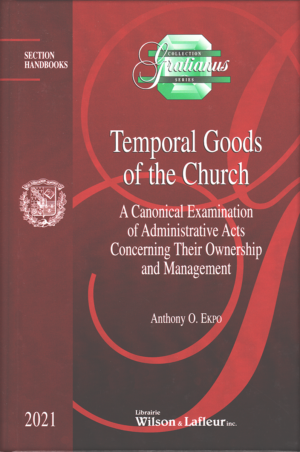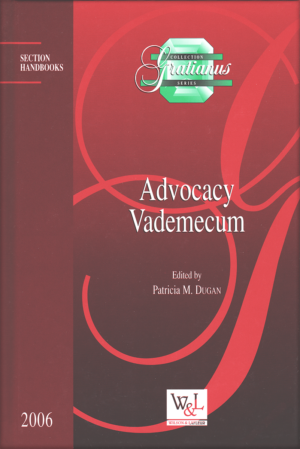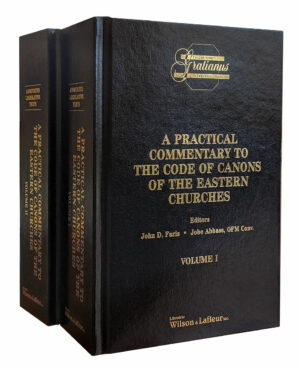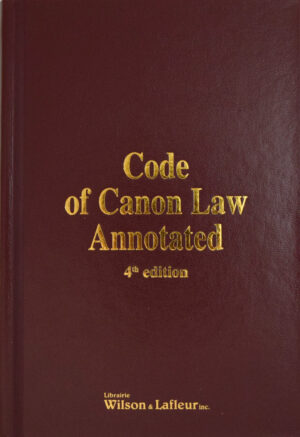The Use of Means of Social Communication in the Context of Procedural Law
Questions and Suggestions on the Advantages of Using the Internet at Local Tribunals for Marriage Cases in the Canadian Context
Questions and Suggestions on the Advantages of Using the Internet at Local Tribunals for Marriage Cases in the Canadian Context
$35.00
The Use of Means of Social Communication in the Context of Procedural Law is a reference, handbook, and commentary primarily on the ordinary marriage nullity procedure in first instance, intended for tribunal staff, diocesan employees, and those preparing themselves for ministries in the Catholic Church, especially local tribunals. Those who work at tribunals are oftentimes confronted with practical questions about the use of modern technology in marriage nullity procedures. Can videoconferencing technology be used to obtain testimony? Can we accept electronic signatures and electronic notarizations? Especially during the time of pandemic and the closing of tribunals for in-person ministry and service, those are some of the problems of people involved in tribunal work. Are dispensations and permissions necessary from the Holy See for the validity of certain procedural acts, or can a conference of bishops enact particular law to address some of the issues that are still a lacuna legis?
The Use of Means of Social Communication in the Context of Procedural Law is attempting to provide guidelines and focusses on questions and suggestions on the advantages – and hopefully the permissibility – of using modern technologies at local tribunals for marriage nullity cases. In addition to citations from important documents from the Holy See reflecting past and contemporary magisterial teachings on the use of these technologies, relevant contemporary civil regulations with special focus on Canada and the pertinent canons of the Code of Canon Law are presented and discussed in detail.
The contemporary civil regulations outline the current limited but permissible use of electronic signatures, electronic notarization, electronic correspondence, electronic evidence, videoconferencing to obtain testimony, authentication of electronic records and e-signatures, and the retention of electronic records.
The ordinary marriage nullity procedure is discussed topically so that the reader can easily consult one of the five main stages of the process: introduction of the case, issue to be considered, proofs, arguments, and the pronouncements of the judge(s). The seven elements of the contemporary civil regulations are transferred into and proposed in the context of canonical discipline and marriage nullity procedures. The commentaries aid the student and the tribunal minister in their understanding and application of the law in the tribunal setting. It is hoped that this Canadian edition will provide answers to the queries of those involved in tribunal ministry.
There are no reviews yet. Be the first one to write one.
You must be logged in to submit a review.





